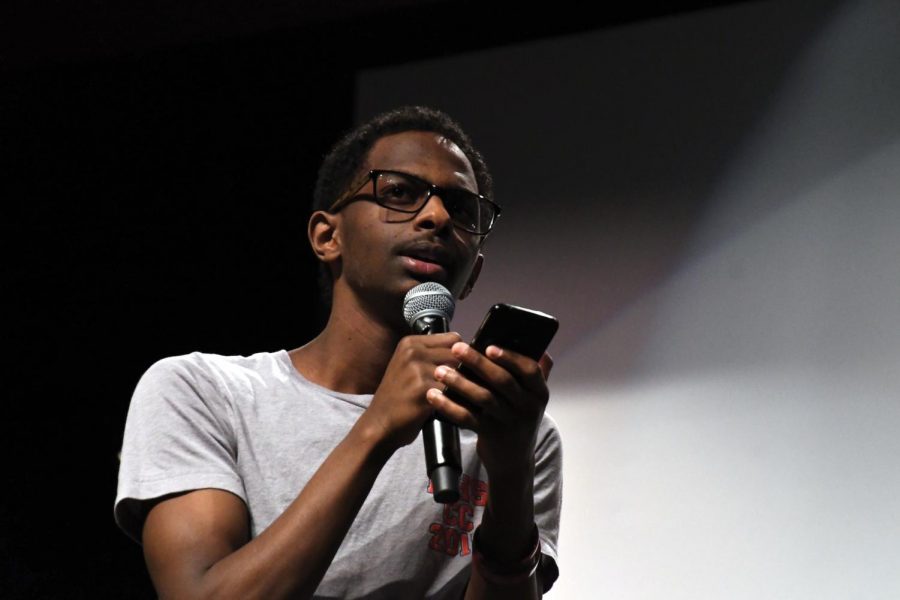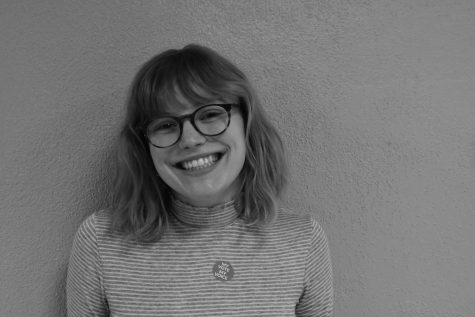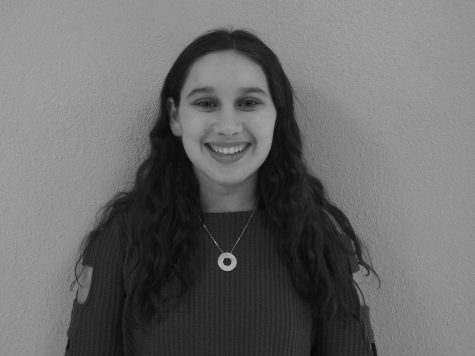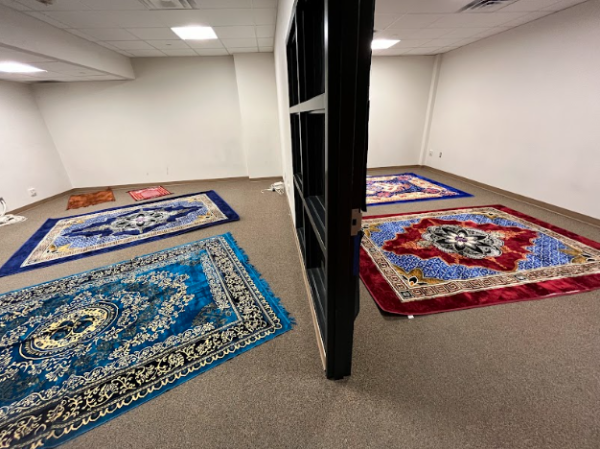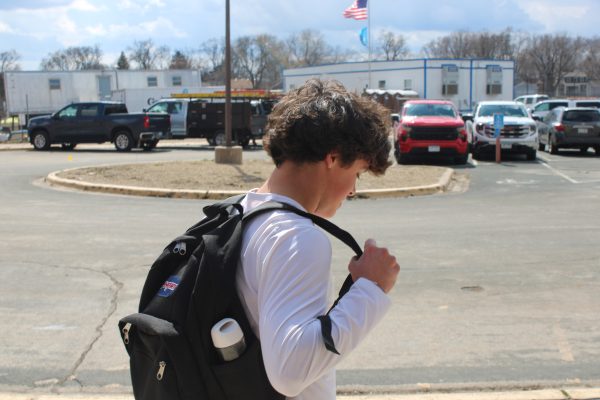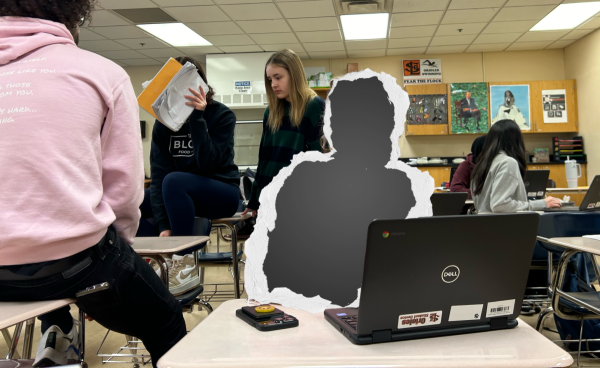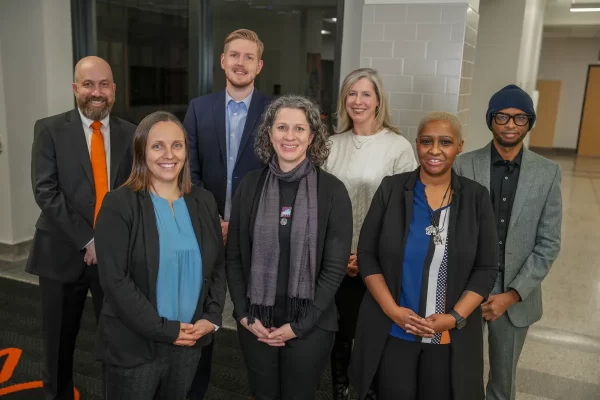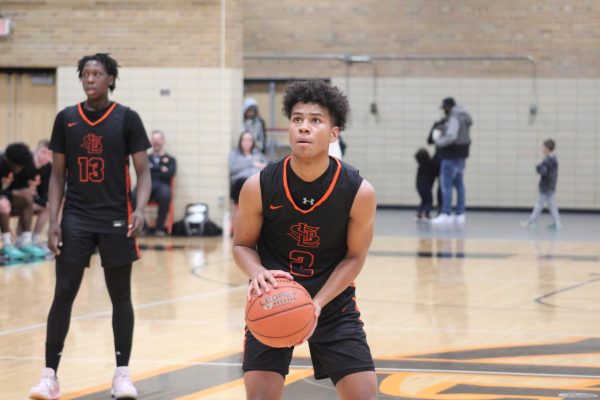#Wearetired show calls out systematic racism in society
Performance brings hope for change
March 19, 2019
After junior Zoe Younger read aloud a spoken word piece she wrote for the Black History Month performance, she said she believes that all American should be educated about the issues of racism.“I think (racism) a big part of American culture right now and just throughout all of our history,” Younger said. “We’ve always had problems dealing with race, so no matter what your racial background is, it’s relevant to you.”
Black History Month performance organizer Chris Weaver said it is important to recognize how little change America has undergone in the past few decades.
“It would be foolish for me to say that history has not changed over the last 50 years, it’s obviously different,” Weaver said. “However, there is still a lot of the same stuff that goes on that was happening 50-60 years ago. That’s why in the video we can show a picture of Emmett Till in 1955 and that we can show a picture of Trayvon Martin in 2012. It’s almost the same exact thing.”
According to Weaver, it is critical for students to hear their peers’ voices and stories in order to better understand each person’s individualized black experience.

“I want to provide that space for people to see their classmates. It’s not just something that just happens on TV or in movies,” Weaver said. “It happens in our school. It happens in St. Louis Park. It happens in Minneapolis. It happens in Minnesota. It happens in the United States of America. It’s all very real.”
Black History Month performance host, senior Mareona Williams, said the opportunity to share her experience, specifically to those she does not see on a daily basis, at Park was meaningful.
“It means a lot to be able to come up here and present and even be able to come up here and have a role in showing you guys a little bit inside what we go through,” Williams said. “You know everyone doesn’t have an AP/IB class, so a lot of people don’t know some of the stuff that we go through, only what they read in a book or TV. Personal things aren’t always able to be said.”
Senior participant Maddy Eduardo-Gonzalez urges people of all backgrounds to recognize black history is also their history. However, she said it impacts different groups in various ways.
“One, it’s your history and enough people have died for you to not care about it. Two, white people profit and contribute to black culture but they don’t want to actually help, so it is everyone’s responsibility to bring that,” Eduardo-Gonzalez said.
Black History Month presentation attendee senior Isaac Kimmel said he believes everyone, regardless of race, should be aware of American history.
“I think it is important because this country was born and built on slaves. It’s important to know about the past,” Kimmel said.
Younger said she is frustrated with the type of discussions people have about race, specifically the rigidness of the conversations that tend to exclude individuals like herself who do not fit into the mold society has created for people of color.
“I am tired in general with our country’s inability to talk about race, but also for me personally. As a biracial woman, I am constantly told that I am not black enough or not white enough and I think I should be human enough to fit into both of those groups,” Younger said.
Senior and Black History Month performance participant Hibaq Issa said she feels the viewpoints of every student matter and can make a difference in combating racism.
“When it comes to changing and starting a movement, one person has a huge impact on a lot,” Issa said. “It’s important because everybody has different perspectives on this topic. And so I think that it’s important to educate others, especially when it comes to this kind of topic, and I just want to stand up for what’s right.”
Weaver said he believes it is up to the students and faculty to work together to combat institutionalized racism within the country and community.
“We can no longer allow racism to dictate what happens here. We can’t allow social capitalism to dictate how we treat other people,” Weaver said. “I believe that race, and what it is now, is a social construct. It’s not a thing. Somebody created it to subjugate, so at some point we have to start understanding that and recognizing that we are all human beings.”




